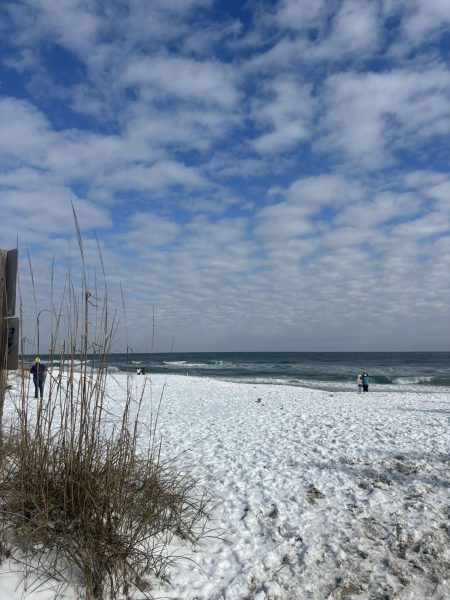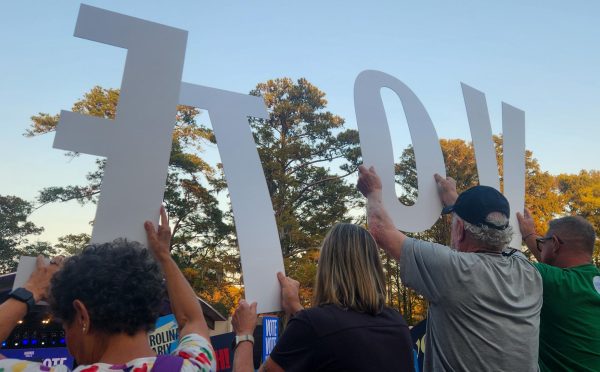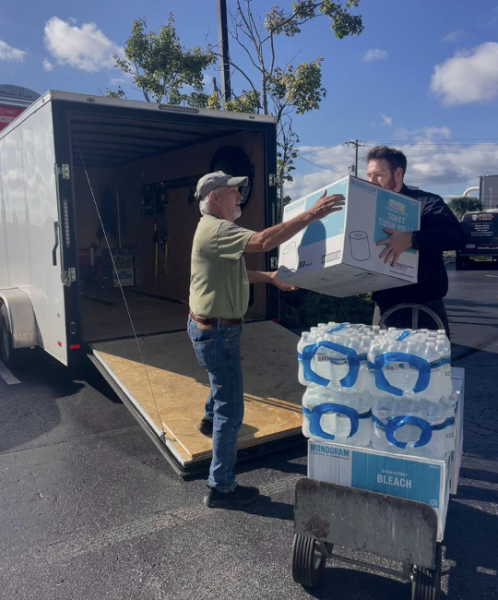McCrory, DOJ respond to HB2 controversy with lawsuit fast draw
In actions that added complexity to North Carolina’s increasingly controversial House Bill 2, North Carolina officials and the Department of Justice filed lawsuits against each other based on their interpretations of the U.S. Civil Rights Act and House Bill 2.
Among other things, North Carolina’s House Bill 2, known as HB2, requires that individuals must use the public restrooms that correspond to their biological sex indicated on their birth certificate, and many claim that HB2 is discriminatory against transgender individuals.
Last week, the Department of Justice indicated its agreement with those who believe that HB2 is discriminatory, and it gave Governor Pat McCrory and other state officials until Monday, May 9 to respond “by confirming that the State will not comply with or implement HB2.” Hundreds of millions of dollars in federal funding were put at stake if McCrory did not comply.
Gov. McCrory asked for two more weeks to formulate a response, but the Department of Justice did not yield to his demands, and on Monday, he filed a lawsuit against the Department of Justice, saying that its HB2 ruling and the placement of federal funding on the line was encroaching on state rights.
In the lawsuit, Gov. McCrory called the Department of Justice’s decision a “radical reinterpretation of Title VII of the Civil Rights Act of 1964 which would prevent [North Carolina officials] from protecting the bodily privacy rights of state employees while accommodating the needs of transgendered state employees.”
“The Department’s threat is real but misplaced,” the lawsuit said. “North Carolina does not treat transgender employees differently from non-transgender employees. All state employees are required to use the bathroom and changing facilities assigned to persons of their same biological sex, regardless of gender identity, or transgender status.”
The Department of Justice did not take long to respond, and also on Monday, Attorney General Loretta Lynch, a native of Greensboro, N.C., spoke for the Department and told the public that the Department would be filing its own lawsuit asking the court to “issue a preliminary and permanent injunction to prevent further violations of federal law.”
“Today, we are filing a federal civil rights lawsuit against the state of North Carolina, Governor Pat McCrory, the North Carolina Department of Public Safety and the University of North Carolina,” Attorney General Lynch said. “We are seeking a court order declaring House Bill 2’s restroom restriction impermissibly discriminatory, as well as a statewide bar on its enforcement.”
North Carolina officials and the Department of Justice are not the only ones involved in the battle over HB2. Numerous companies and public individuals have refused to do business in North Carolina due to the passage of the “bathroom bill” that many have called one of the most extreme anti-LGBT legislations ever passed.
Bruce Springsteen, Pearl Jam, Nick Jonas and other musicians have all canceled shows in North Carolina in the wake of HB2, and CNN reports that this loss in ticket sales alone has lost North Carolina roughly $200,000.
In Wilmington, A&E and TNT, the two film companies that have made recent additions to the film industry of the city, have stated that they will not seek further business in North Carolina as long as HB2 is in effect.
However, there are many who would not agree that HB2 is discriminatory. Those who defend the bill argue that it protects individuals from sexual assault in the public agency bathrooms by barring those of the opposite biological sex from entering. The Family Research Council, among others, has expressed its support for HB2.
And in their lawsuit, North Carolina officials defended HB2 against claims that it is discriminatory, arguing that Gov. McCrory’s Executive Order 93 “expanded discrimination protections to state employees on the basis of sexual orientation and gender identity, among others.”
However, Attorney General Lynch and the others at the Department of Justice were not convinced that HB2, as enforced by North Carolina officials, is not in violation of federal law.
“This action is about a great deal more than just bathrooms,” Attorney General Lynch said. “This is about the dignity and respect we accord our fellow citizens and the laws that we, as a people and as a country, have enacted to protect them – indeed, to protect all of us.”












